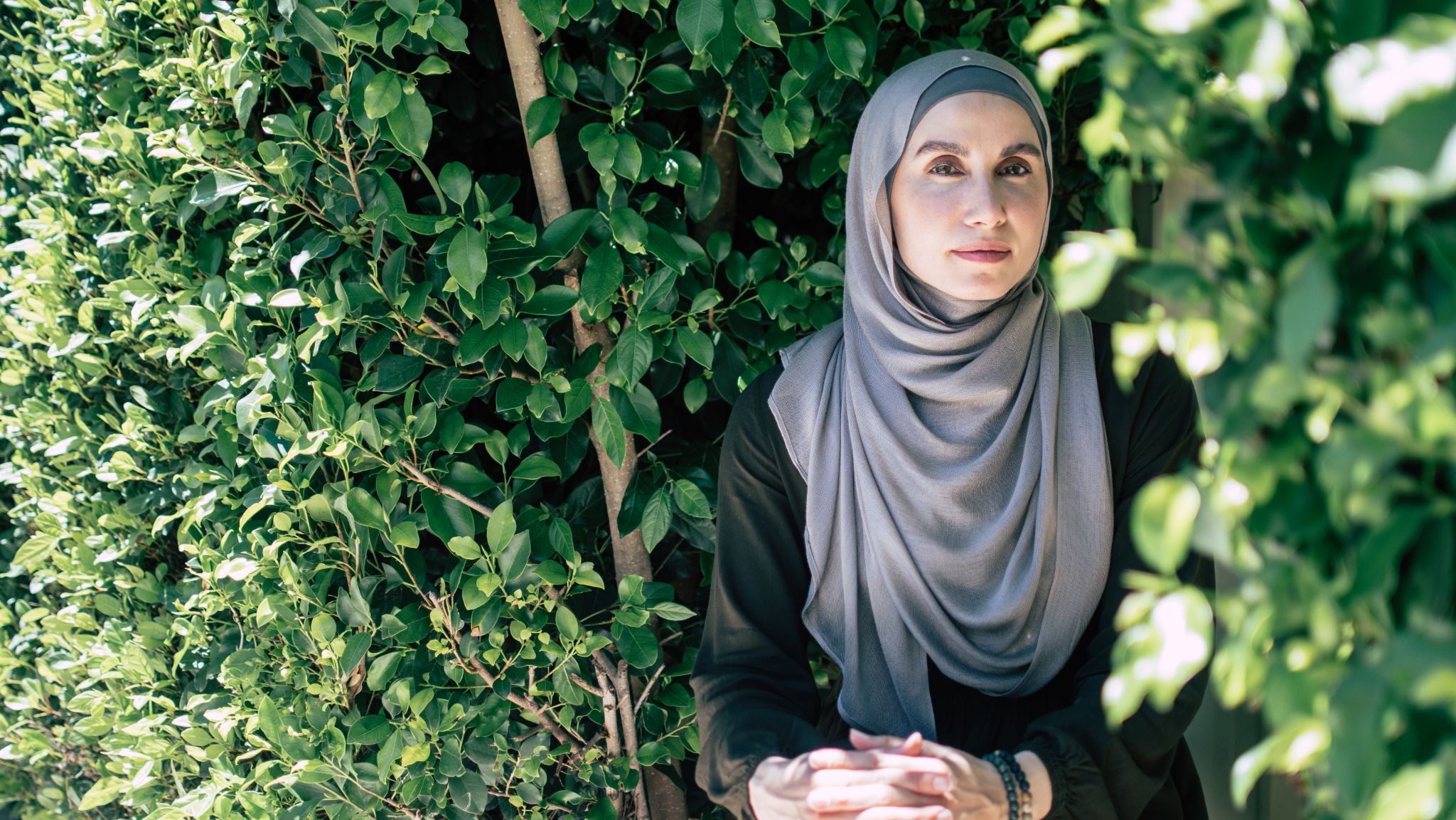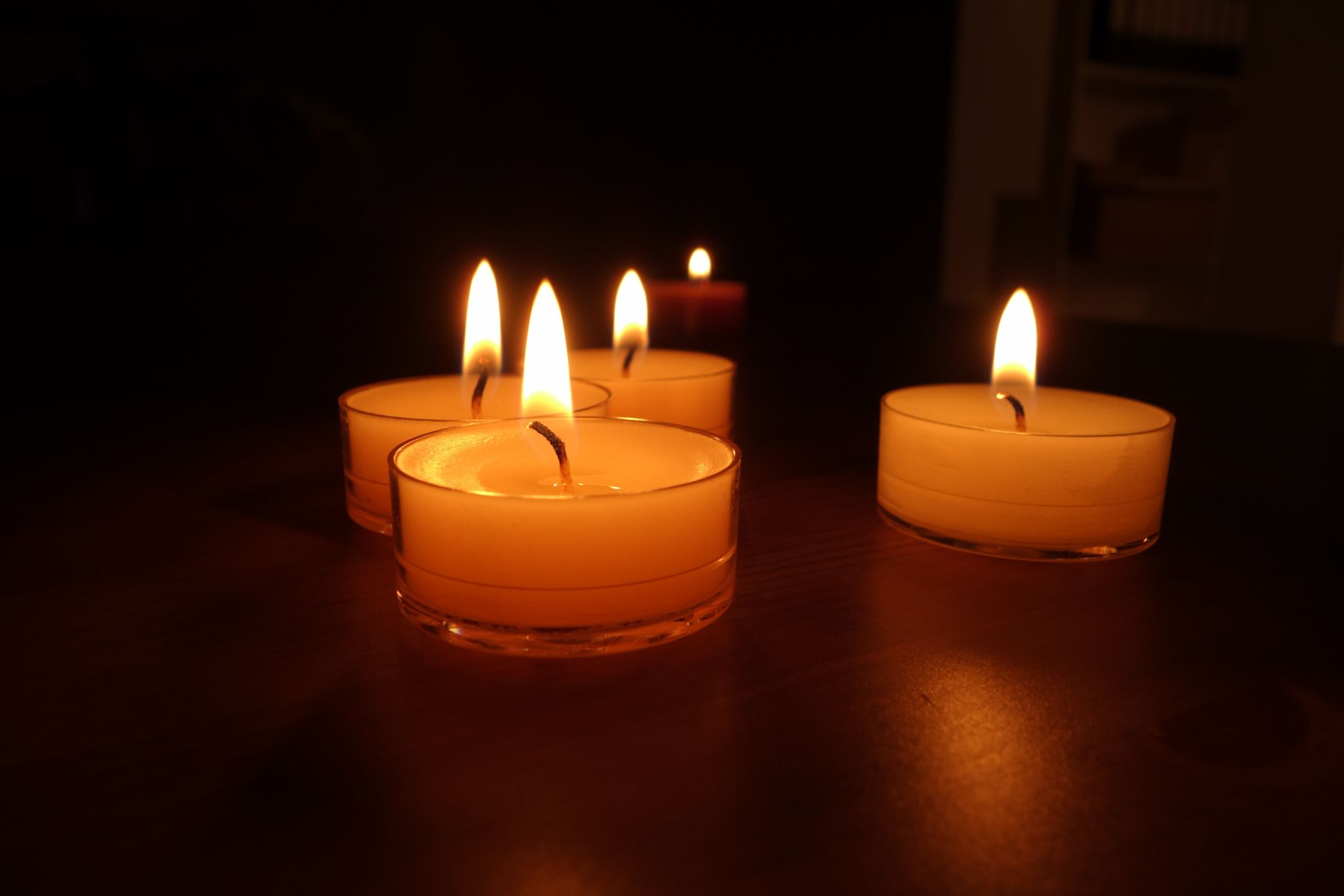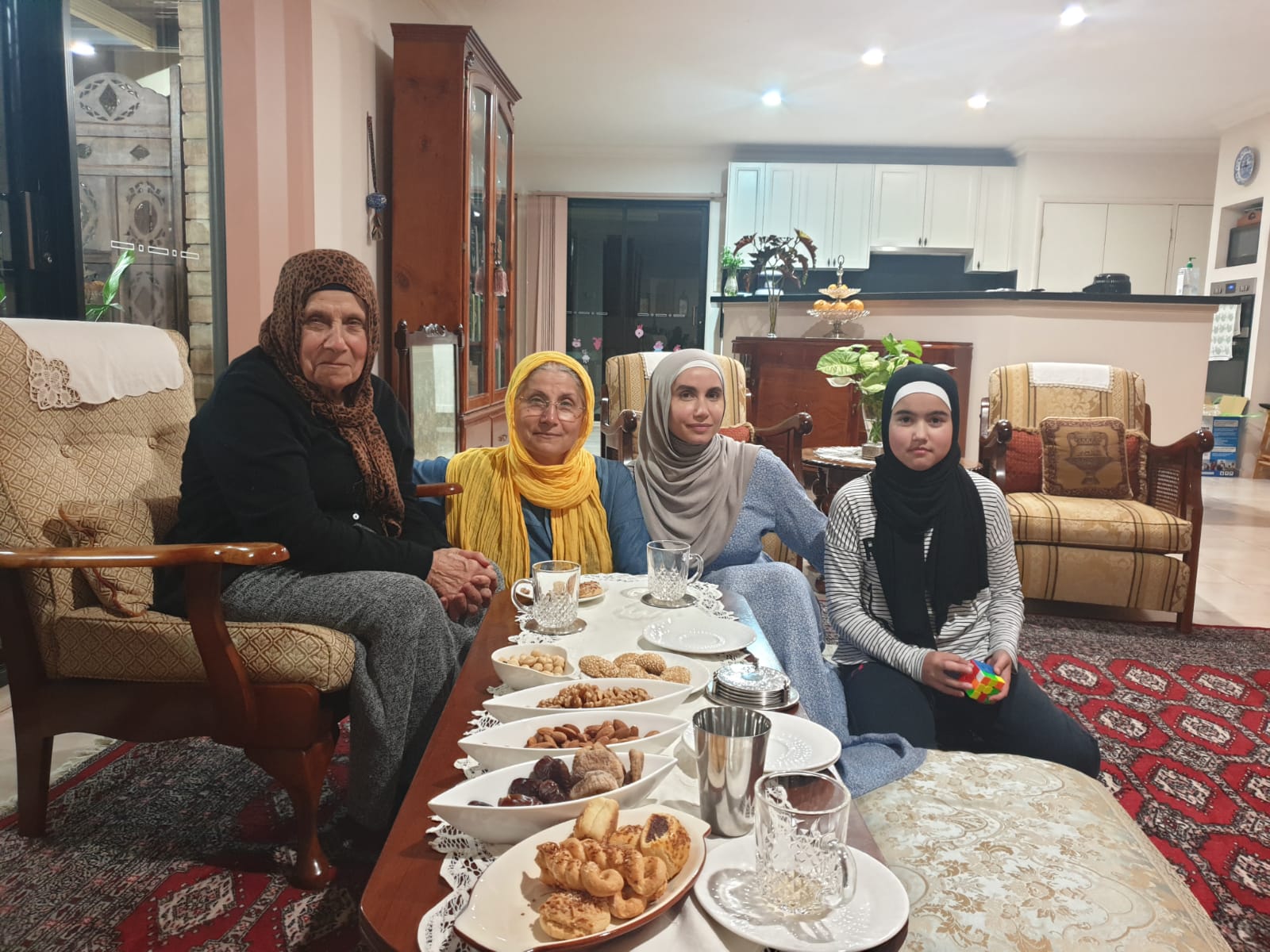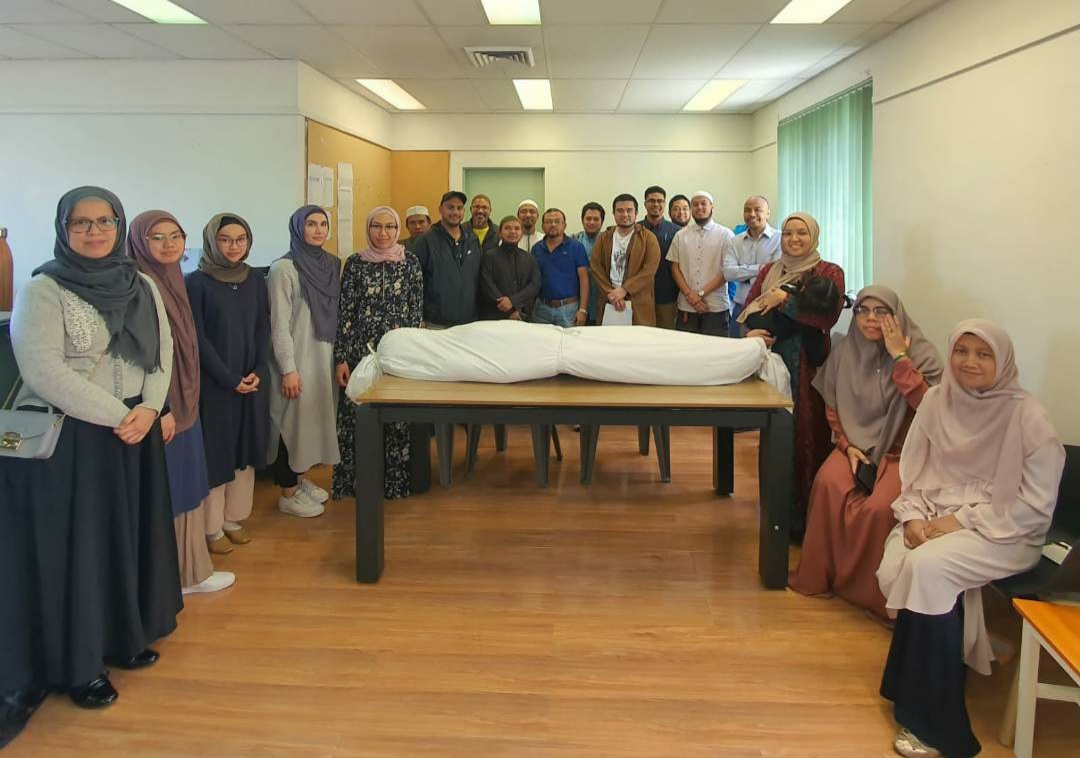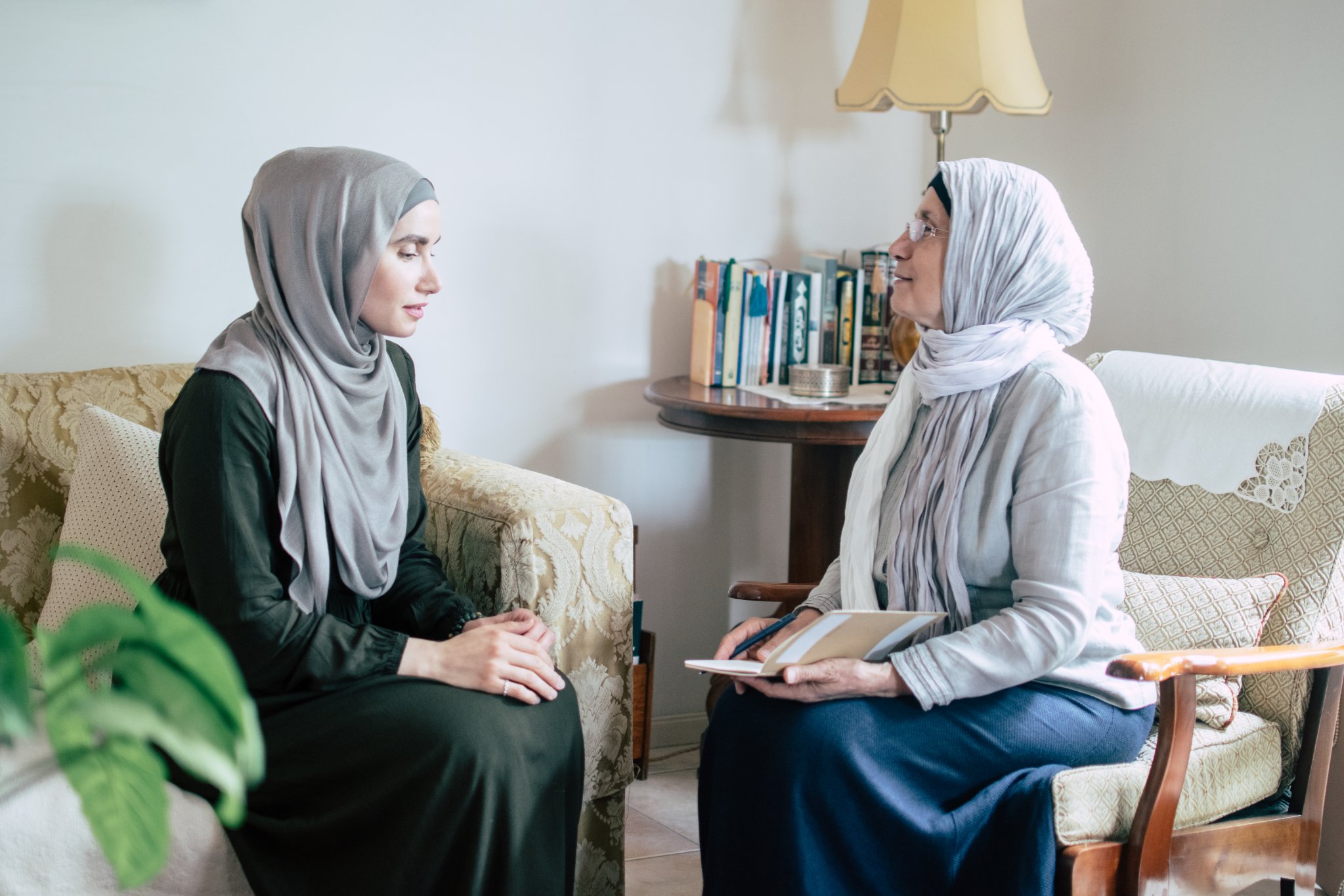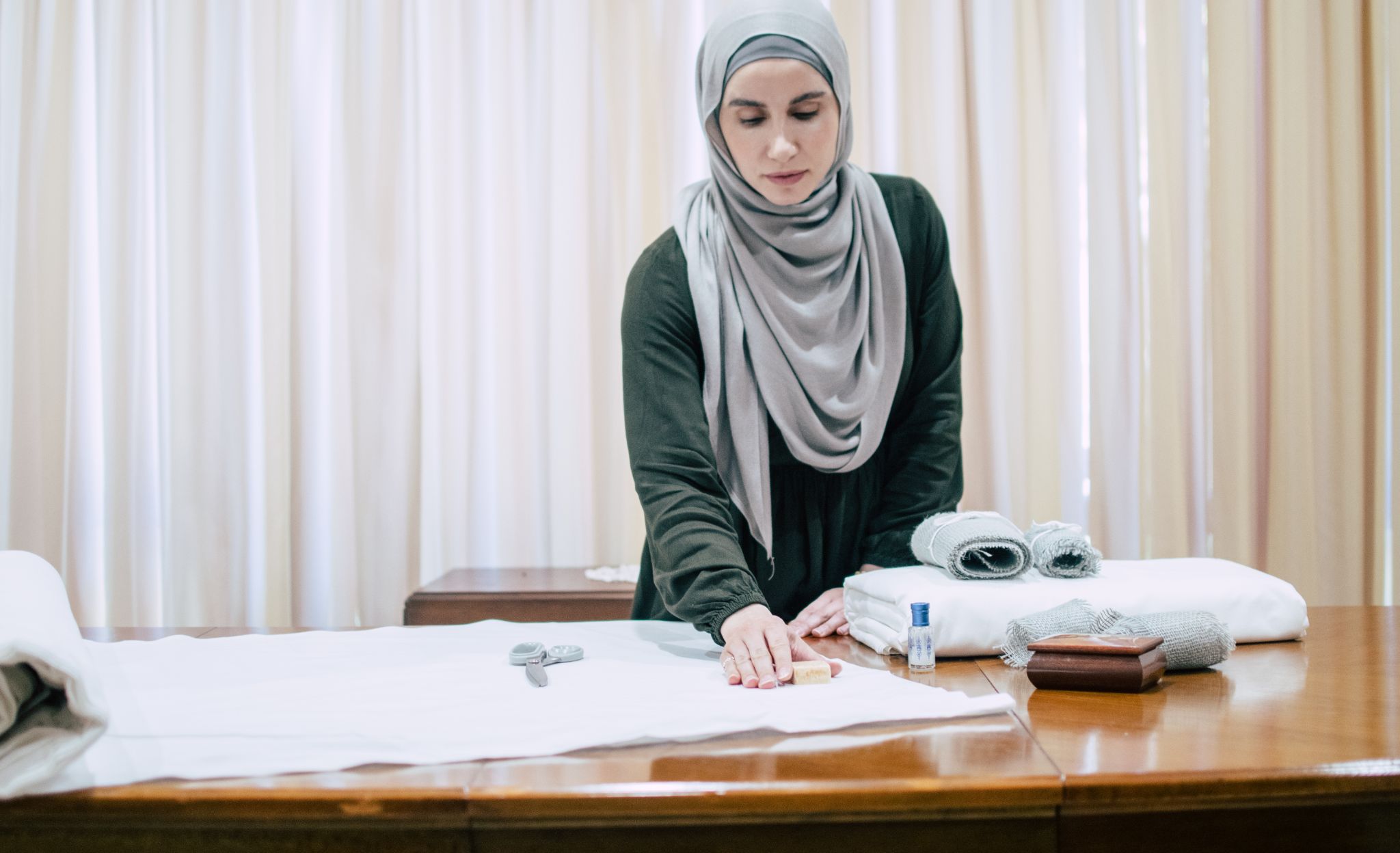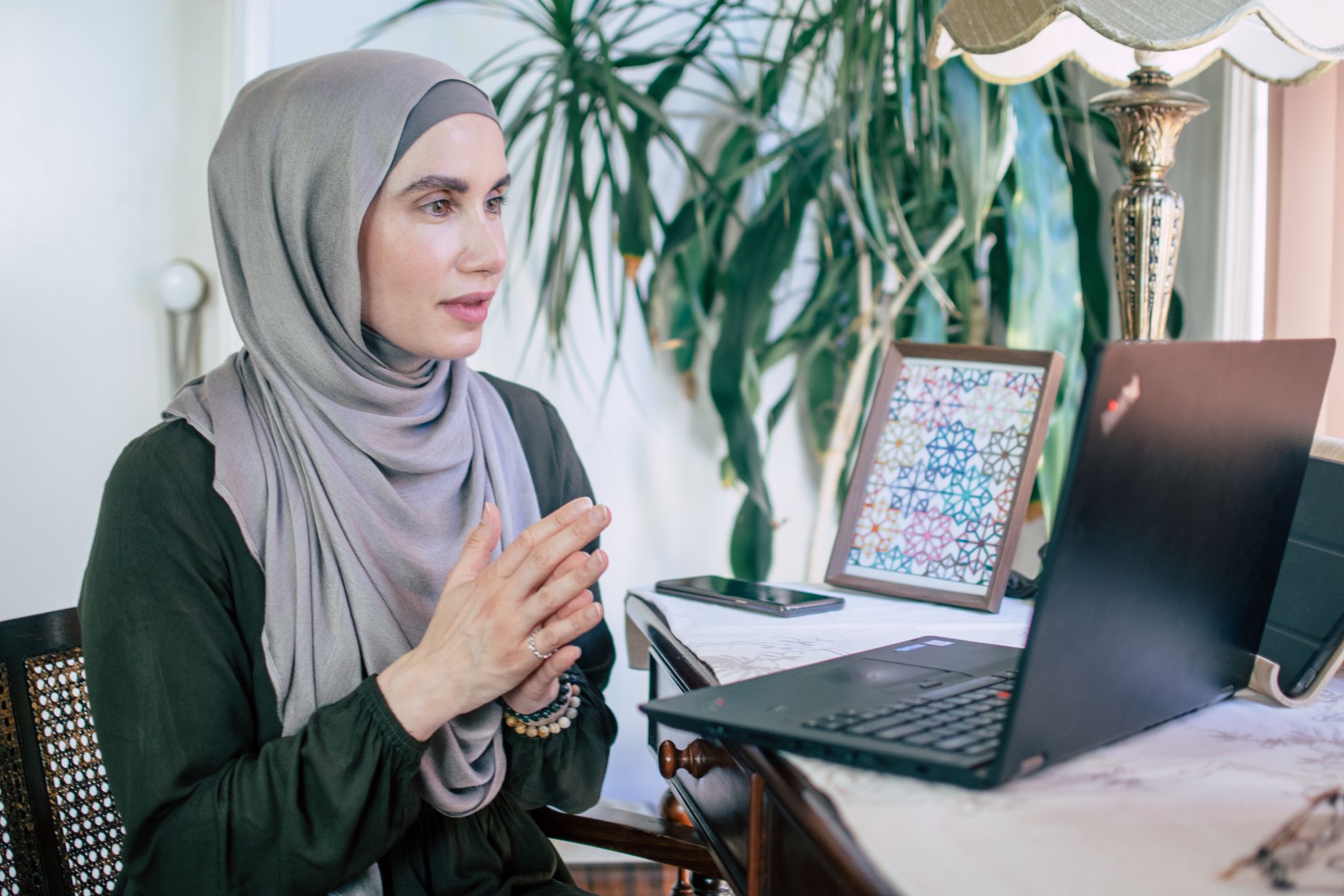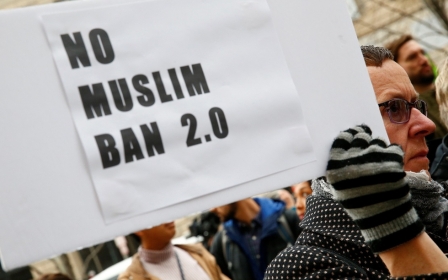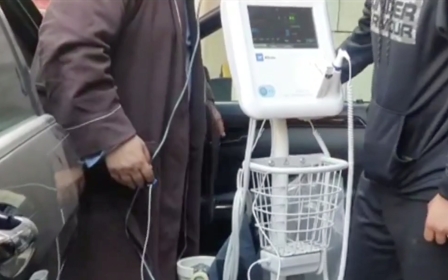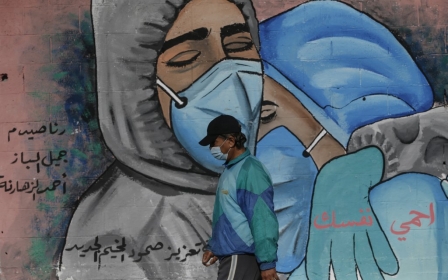Death cafes, doulas and dolma: Meet the woman bringing dignity to the end of life
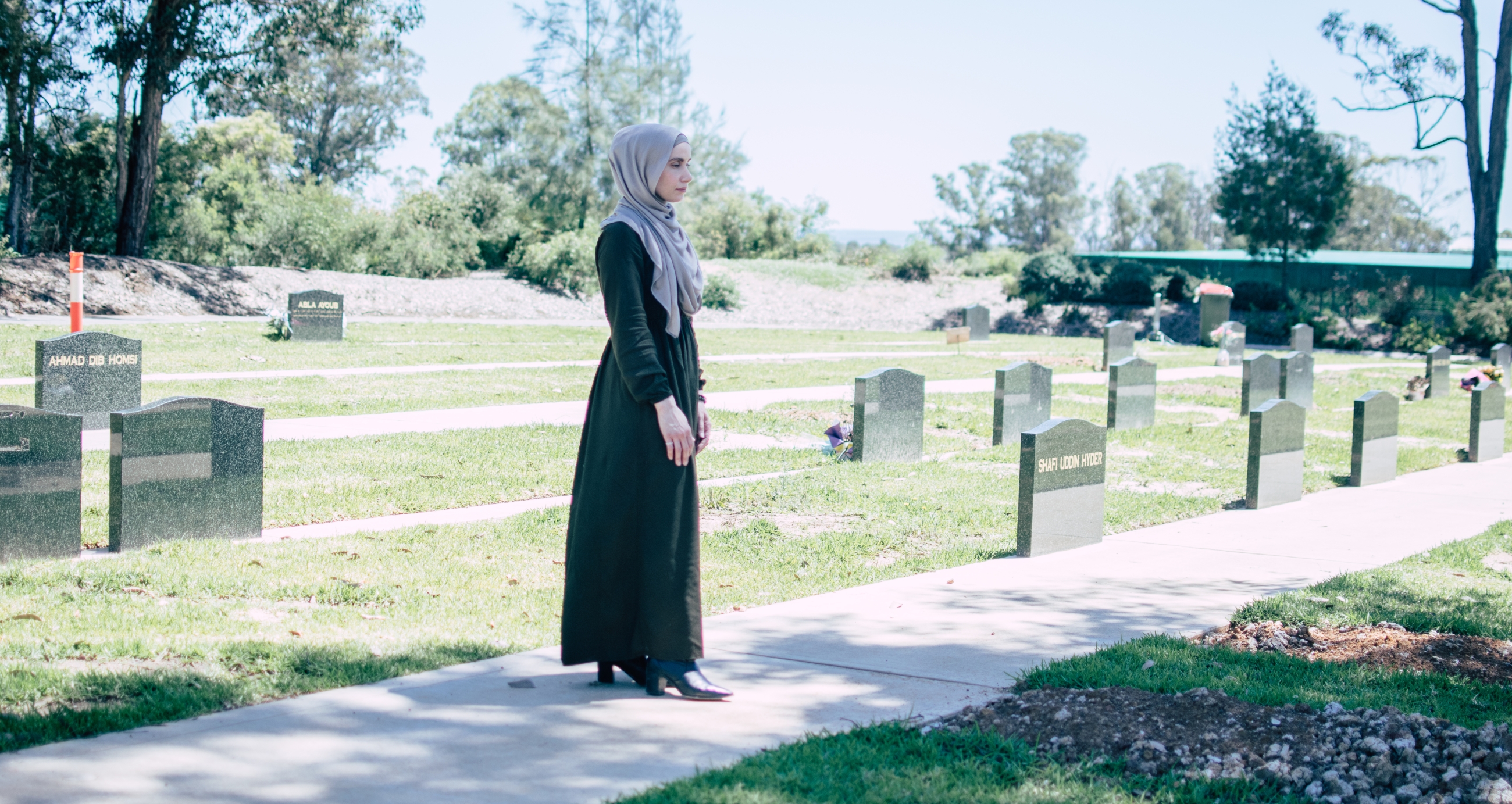
Laying in her bed, in the comfort of her own room, a woman speaks breathlessly as Mariam Ardati gently strokes her hand, and listens. The woman is dying, she has a terminal illness and has been told by her doctor she only has a number of weeks left.
Ardati, in her thirties, reassures the woman, easing her worries by taking on the practical responsibilities of death.
As Ardati carefully shifts the woman's pillow to make sure she is more comfortable, the woman, a single mother also in her thirties, shares her concerns with Ardati. Who will take care of her three children (similar in age to Ardati’s own three children), who will attend her funeral in a country (Australia) where she doesn’t have family, who will be there at the end?
Ardati will. That’s her job.
New MEE newsletter: Jerusalem Dispatch
Sign up to get the latest insights and analysis on Israel-Palestine, alongside Turkey Unpacked and other MEE newsletters
As one of a growing body of people taking on the responsibility to offer emotional, physical, psychological and practical support as one “transitions to the next phase", Ardati is an end-of-life doula, also known as a death doula.
Although there is no official body to accredit end of life doula training, the New Jersey based International End of Life Doula Association (INELDA) representing nine countries around the world including the UK, Mexico and the US, offers training and certification.
Accurate figures on how many people are working as death doulas around the world today don't exist, with no records for the Middle East region.
The End of Life Doula UK says it's trained around 450 people since it was established in 2018; and INELDA says the profession is becoming more popular, with 44 percent more people trained as death doulas in 2019 than in 2018; this year has seen a 28 percent increase on last year.
'My role helps to usher in death with dignity'
- Mariam Ardati, death doula
Doulas, (a Greek term meaning "female servant") have been around for centuries, helping people at moments of transition. They are more commonly associated with birth, offering comfort and encouragement to an expectant mother as she prepares to welcome a new life - but end of life doulas have become more prevalent in the past decade.
Ardati works specifically with the Muslim community where she lives in south-west Sydney, but death doulas are available to people of all or no faith.
“My role helps to usher in death with dignity and in a way that aligns with the dying person’s values,” she tells Middle East Eye.
This could mean lighting candles, holding a hand, breathing exercises or nature walks. “Anything and everything that keeps them hopeful and comfortable," she says.
As in life, so too in death, different people have different needs: “One client that I was with for three months before her death loved scented candles and essential oils. So I would check in on her candles weekly to make sure she had enough because she would light them all around the room at sunset.
"It was her ritual and we kept that up for her right up until her last night on earth.”
Another woman Ardati supported missed the traditional Middle Eastern dish of dolma or warak enab – vine leaves stuffed with rice and meat. But as many people stop eating and drinking towards the end of life, the woman could no longer swallow. Instead she inhaled the pleasing smell of the familiar flavours which proved satisfying enough for her. “We did that daily for her until she lost consciousness,” says Ardati.
She says the most common request a dying Muslim makes is to have the Quran playing softly in the background or to have someone sit at the bedside and recite it.
“Listening to verses from the Quran that speak of God’s love and mercy for His creation really help to soothe the soul. Muslims want to believe that they will be going to a better place, a place where there is no pain, no suffering, a place of eternal happiness so talking about Jannah (paradise) and all its beauty also helps bring a sense of tranquillity to the dying space.”
Other Muslim-specific requests can include having a bed or chair placed to face Mecca (Qiblah), the direction Muslims face when offering their daily prayers, so those who are bed-bound or find it difficult to move feel they can continue to honour their prayers. It is also the direction they face when buried in their grave.
Second chance
Ardati, who lives with her husband, three children and pet cat, also works as a mental health chaplain and runs a monthly soup kitchen that feeds the homeless – all voluntary roles, including her job as a doula.
Born to a Lebanese mother and father who had emigrated to Australia in the 1970s when they were 10 and 18 respectively, she and her four sisters were all born in Australia.
A self-confessed “health freak”, inspired by her maternal uncles, Ardati started strength training when she was 14-years-old. Her passion turned into her profession and after studying for a degree in health sciences at Sydney University, she went on to work for the local health authority.
She soon launched an exclusive women-only gym and started working 72 hour weeks. With no time for a social life, the entrepreneur hardly saw her parents, and says she did the “bare minimum when it came to my relationship with God”.
But in 2004, she experienced a near fatal car accident, and everything changed.
It was a Saturday afternoon, she had locked up her gym and climbed into her car to drive home. As she took off at the lights, a tipper truck pulled out in front of her without warning and she had a head-on collision.
The driver’s seat was crushed; somehow she had moved to the passenger seat before the impact, her body curled into a foetal position. And as she escaped from the vehicle, the car caught fire.
“I have no idea what happened, but something otherworldly did – time slowed down. It only took a split second, but in that time I was able to move my body across. I felt very much like it wasn’t my time, but I got way too close to death.”
The near-death experience led her to question who she was and where she was heading “personally, professionally, and spiritually”.
“In hindsight, it was the best thing that ever happened to me. It gave me time to recalibrate my life.”
Never having experienced the death of friends or family before, but now deeply affected by her own mortality, Ardati walked into a funeral parlour days after the crash and asked them to show her what happens when someone dies.
That same year she sold up her business, retrained as a Muslim funeral director, went for the Hajj pilgrimage, and started wearing the hijab.
Death anxiety
More than a decade after the car accident, in 2017 - and now fully experienced with the death process and funerals through her work as a funeral director - Ardati questioned why so many people she had come across were traumatised and anxious about death.
She noticed a lot of the anxiety was over the bureaucracy of dying - such as deciding where they would like to die – at home or in a hospital; the funeral arrangements; how to write a will, including who will care for any children and pets; and who will inherit property. And the pressures in communicating all this to loved ones.
Ardati realised that by documenting one's last wishes in advance, some of this anxiety is removed: “It’s not uncommon to find that the dying person has actually made peace with their own death and that it’s the spouse or children that are struggling to accept that this may be the end for their loved one."
She enrolled that same year in a training course for end of life doulas that was run by the Australian Doula College and learnt about creating a meaningful dying experience by providing the right level of support. Once qualified as a death doula, she was better able to facilitate open and honest dialogue, acting as a bridge between the dying and their families.
“So much is left unsaid in the dying space and that can lead to years of regret," she says. Better communication helped to "resolve any issues that may be causing them to worry”.
Community specific support
INELDA has noted that there are many communities in each country that remain "underserved" by the skills that doulas offer.
"We all will die, and therefore all could benefit from the presence and experience an end of life doula brings," Christy Moe Marek, programme development manager for the organisation, told Middle East Eye.
'Dying has become foreign to us and it’s having some devastating effects. Because we don’t know what death looks like, what it sounds like, what it feels like, it has given rise to a lot of fear and anxiety'
- Mariam Ardati, death doula
"It is our most sincere hope and intention that more people from diverse populations will train in this very special role and become leaders of the work in their own communities."
Ardati did just that, saying she chose to work specifically with the Muslim community as there is a real need to provide culturally sensitive care and support at end of life.
She says it is the little things, like listening to the Quran, or helping make tayammum - a practice of washing for prayer that doesn't require water, which some people may find sensitive on their skin towards the end of life.
She also has to balance the family's belief that God will cure the sick person, with finding an acceptance of letting go without making them feel as if they are giving up on their dying loved one.
"It's the understanding that every single life will have a beginning and an end, this person is never going to live forever," Ardati says.
"It's finding that balance between continuing to pray for a miracle, but always having the expectation that God will take back his amanah (something given in trust) - this was always going to happen."
Signs of dying
Being familiar with the signs of active dying, which happens in the final moments, is something Ardati helps those at the end and their loved ones to look out for: “Changes in breathing patterns, refusal to eat or drink, longer periods of deep sleep and shorter wake times, changes in skin colour and texture.”
These are signs that most people may be unfamiliar with.
“I spend a lot of time reassuring them that this is a normal, natural process and that everything is progressing as well as can be expected.”
Over the last century our natural death experience has changed, she says. “Death has been out of sight, out of mind” and now “so many of these signs have become unfamiliar to us”.
Dying used to be an intimate family-focused experience. “No one would bat an eyelid if a family member wanted to bath and dress a body at home in preparation for a funeral.”
But since death has become medicalised and hospitalised, for many it has become sterile, she says. “Dying has become foreign to us and it’s having some devastating effects. Because we don’t know what death looks like, what it sounds like, what it feels like, it has given rise to a lot of fear and anxiety.
"Nowadays, death happens in a hospital or care facility where around 70 percent of us will eventually die, whereas given the option, the same percentage of people would prefer to die at home."
A ‘good death’
Being prepared can lead to having a "good death" – an idea favoured by the death positive movement, and also by some Muslims who pray to have a husnal khatam or a "good ending".
“We are consumed by ideas of living a 'good life', but often forget that we should prepare for a 'good death' – the ending of our life experience is the start of a new experience, and we need to remind ourselves of this,” Ardati says.
She encourages people to start talking about their own death plans while they are still healthy. Through her Death and Dying workshops where she teaches people how to support their loved ones in death, and her virtual - because of Covid-19 - Death Cafes, she’s noticed more people, and younger people, showing an interest in her line of work, and what their own deaths may look like.
Demand for spaces at her Death Cafe, usually run just once a year, has gone up, which may be because of the pandemic she says: “The silver lining that I see Covid has brought with it – a willingness to know more about death.”
Despite dealing with a topic most struggle to discuss, facing one's own mortality, Ardati does so with almost an effervescence.
Being around death doesn’t faze her. “Our bodies will always return to the earth from which we came, either through a prolonged illness or a sudden death, whatever the journey, it all leads to one place."
The end
Weeks later, the woman with three young children Ardati was caring for passed away. Her breathing started to slow down, she spent more time asleep than awake and very gently, she died at home, as she had wished.
Knowing the signs of dying, days before Ardati had started to pay a vigil by the woman's bedside. She was there when she died at 3am. She gently closed her eyes and her mouth before rigor mortis (the stiffening of the dead body) set in. She removed additional pillows from behind her and lay her down on the bed, carefully removing the cannulas that were piercing her body. She then recited a passage from the Quran which is meant to ease the soul's transition to the afterlife.
When the woman's children woke up at 6am, before they entered their mother's room, Ardati prepared them by explaining their mother had died, and reassured them that she would be in a safe and comfortable place.
'Every death teaches me something new'
- Mariam Ardati, death doula
She encouraged them to say goodbye. The woman's nine-year-old son appeared most affected.
"He didn't know if he could touch her. I said he could lie next to her if he liked. He climbed onto the bed and lay next to her, sharing the same pillow. An hour and a half later he was outside riding his bike - but he needed to have that time, holding his mother, saying goodbye."
Ardati was also the one who washed her body (ghusl). As is tradition, it was washed three times with the first wash using water mixed with crushed lotus leaf, and the last with water infused with camphor or perfume.
She then wrapped the body in a white burial shroud (the kaffan), and performed the remaining rituals of a Muslim burial.
“Every death teaches me something new, I’m always learning a new perspective or approach to the work I do. The dying (and the dead) have been my biggest teachers and I always leave that space reflecting on the lessons learnt."
She adds: “It’s forgetting that there is an end to all this that makes dying the hardest.”
This article is available in French on Middle East Eye French edition.
Middle East Eye delivers independent and unrivalled coverage and analysis of the Middle East, North Africa and beyond. To learn more about republishing this content and the associated fees, please fill out this form. More about MEE can be found here.


